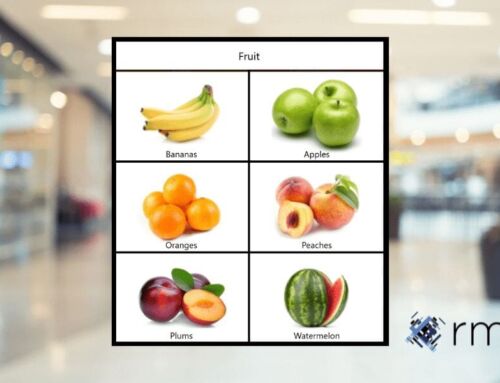Author
RMS Marketing Team
Share
Top 10 Overlooked Skills for Hiring the Best Sales Associates
When people think of sales roles in retail, they might immediately think of the role as just an entry-level position. However, the sales team is the face of the retail business; the ones building up the relationship between your business and your customers, as well as negotiating sales. Because of the belief that this is an entry-level job, the hiring of sales associates often focuses too hard on a particular set of skills, meaning retail business owners are frequently depriving themselves of the best hires. While it is possible to build a team with inexperienced people and train them up to work in your company, retail business owners should be looking for a more inherent set of skills which are not necessarily taught. In this blog, we explore the soft skills which make the best sales associates, that you might be overlooking!
What are Soft Skills and Hard Skills?
Soft Skills
These skills encompass interpersonal, social and communication abilities that enable effective collaboration and navigation of complex social situations. They include effective communication, teamwork, adaptability, problem-solving and emotional intelligence. Soft skills are crucial in fostering positive relationships, collaboration and creating a harmonious work environment. They play a vital role in leadership, customer service and any role that involves working with others. They may be more challenging to quantify and teach directly as they are far more about an individual’s innate personal abilities, rather than the skills they have been taught.
Hard Skills
These are specific, teachable abilities or knowledge that individuals acquire through education, training or experience and are often job-specific. Hard skills are tangible and measurable and encompass various skills such as technical proficiencies, analytical skills, language proficiency, mathematical and numeracy capabilities. Hard skills are typically acquired through formal education, on-the-job training or practical experience. These skills serve as the foundation for performing job tasks and are crucial for individuals seeking success and competence in specialised professions.
So which do you need to hire great sales associates?
The answer is: BOTH!
Retailers wishing to hire great sales associates might automatically begin looking for hard skills such as technical proficiency and experience as they are easy to measure when narrowing down candidates for hire. Soft skills, often overlooked by hiring managers, are the intangible qualities that distinguish a great sales associate from a good one. While technical skills can be acquired through training, these soft skills are deeply ingrained in an individual’s personality so spotting them in potential hires is essential.

Ideal Soft Skills for Sales Associates
1. A Natural Desire to be Helpful
It shouldn’t come as any surprise that a natural desire to help people comes at the top of the list. Yes, the role of sales associate is defined by a person’s ability to sell a product to a customer, but this has much more to do with the process of selling than simply ‘closing the deal’. Part of that process is building a relationship with a customer to understand their needs and wants. Being helpful is the key to meeting customers’ needs and establishing the bonds to build lasting customer relationships. Sales associates should have a natural desire to help and the intuition to sense when a customer might need assistance. They should be prepared to answer questions and ensure they are ready to engage when they are needed to check stock or grab a different size as well as discuss products in detail with the customer.
Common phrases can encourage this level of helpfulness such as, ‘Did you find everything you were looking for today?’ or ‘Is there anything I can help you with?’ These demonstrate that your sales team are eager to be of assistance and that nothing is too much trouble.
2. Able to Read Emotions
A great sales associate will have an innate ability to read emotions well, ie. they will be highly empathetic and emotionally intelligent. When assisting potentially hundreds of customers daily, tuning into customer emotions quickly is a first-class skill which cannot be overlooked.
Many purchases are highly emotional, such as buying jewellery, and missing the mark with customer emotions could easily lead to the loss of the sale or simply misunderstanding what the customer wants. Sales associates with the ability to empathise with customers will find it much easier to identify excitement, anxiety or any variety of emotions in order to assist them and make appropriate recommendations or provide advice.
3. An Outwardly Friendly Appearance
Presenting an outwardly friendly appearance is an essential sales associate skill. This isn’t just about readiness to help but about sending the right signals to the customer from the moment they walk in the store. It begins with saying ‘Good Morning’ or ‘Welcome’ when in proximity of a customer and making the effort to engage. This is not something that naturally comes to all employees so when looking to hire sales associates, a subtle but powerful skill to notice is whether they exhibit the natural signs of being a ‘people person’. After all, teaching someone to be a people person if they aren’t one, is unlikely to be a success.
Customer experience is about the most important aspect of having a physical store. If your sales associate walks by without making eye contact or giving a smile and welcome, your customers are unlikely to approach if they have questions and aren’t made to feel welcome. A quick smile and hello really says: ‘I’m here to help when you’re ready’.
So how do you tell if a sales associate is a people person? Look for candidates who describe their enjoyment of working with customers and naturally greet people as they meet them.
4. Plenty of Patience
As with most industries, in retail there is the good, the bad and the ugly and endless amounts of taking the rough with the smooth. Sales associates require patience in abundance in order to answer questions, deal with complaints or product faults. There will be times where customers are difficult and rude or simply take a long time to come to a decision.
Patience is a virtue and not everyone has it! Great sales associates will remain calm and professional no matter what comes their way.
5. Be a Quick Learner
There’s never a perfect time to start to work in retail so being a quick learner is another essential soft skill. You might think that learning about products and acquiring knowledge about company procedures and technology are hard skills but the willingness and ability to take on information quickly and adapt to the new surroundings are actually soft skills.
If you’re experienced in hiring, you’ll know that some people are able to hit the ground running and take to their new environment like a duck to water, and others seem to take weeks or months to get the hang of things and all the while, they aren’t able to effectively help customers. That’s because not everyone has the ability to learn quickly so look for hires that actively engage in learning processes quickly and are eager to learn.
6. Excellent Time Management and Multitasking
During busy times, retail can be an exceptionally chaotic environment so look out for sales associates who are effective at time management. This will ensure you’re hiring staff who are on the shop floor on time, back from their breaks promptly and generally making the best use of their time during their shift.
Sales associates need to be able to spend time with the customers while thinking of product information and suggestions, completing sales at the checkout and ensuring customers aren’t being neglected. Keeping up with a fast-paced environment is an essential skill to avoid frustrating customers so efficiency and time management should not be overlooked when hiring sales associates.
7. Resilience
Leading directly on from time management and multitasking, sales associates need to demonstrate a lot of resilience when difficult situations come their way. This could be quickly adapting to changing products, changing policies, difficult customers, busy periods and more. With all the training in the world, it won’t make a difference unless a sales associate is able to adapt to difficult scenarios that may transpire.
8. The Ability to Adapt
Can your sales team members navigate and respond effectively to the unique challenges they encounter? Failing to do so could lead to potential issues.
Adaptability is a crucial trait for sales associates, considering their frequent interactions with diverse audiences, each with distinct expectations, motivations, and pain points. If they are unable to adjust their approach to sales and customer service based on varying situations, they may encounter difficulties in achieving success.
9. Power of Persuasion
The power of persuasion is an essential retail skill for sales associates but it’s far more than being pushy or overselling a product that isn’t right for what the customer needs. It certainly isn’t about closing the deal no matter what. This comes back around to emotional intelligence and being a ‘people person’ as well as having an excellent level of product knowledge. Positively interacting with the customer to discover what it is they need and what products would actually benefit them is where the power of persuasion lies. For instance in selling a customer a coat: if they’re walking their dog in the winter then they’ll need practicality in the form of pockets for dog treats and suitability for the weather. Someone looking for something less specific might be more open to style tips and accessorising.
Persuasion boils down to meeting the needs of the customer and correctly identifying how a product will benefit them. A sales associate can learn the product features but without the ability to read people and understand how those features might benefit a customer, they will struggle to be persuasive.
10. Keep Up With Trends
Similarly with power of persuasion, sales associates need to ensure their product knowledge and their trend awareness is accurate. This is more in depth than understanding the product collections or the upcoming releases; it’s about having an exceptional knowledge of your customers. Sales associates need to be able to understand what products resonate with different age groups and what are the hot sellers of the season. This can partly be a hard skill based on learning about analysing the data from your EPoS to find the best selling products and their consumers, but remaining intune with customers’ wants and having excellent trend awareness will set those sales associates apart.
Conclusion
In summary, the role of sales associates in retail is often underestimated, with the assumption that as it’s an entry-level position, all the desirable skills can be taught. However, these individuals play a crucial role as the face of the business and hiring the right people is about striking a balance between hard skills and soft skills.
The ideal sales associate possesses both sets of skills, embodying a natural desire to be helpful and make the needs of the customer a priority in all they do. A well-rounded sales team, with a mix of interpersonal and job-specific abilities, enhances customer satisfaction and contributes to the overall success of the retail business. Retailers should not overlook the importance of soft skills when hiring sales associates, but instead recognise and prioritise these skills in their hiring practices to ensure the best fit for their teams.
Why Choose RMS?
RMS have worked with ambitious businesses since 2004, supplying tailored software solutions and EPoS hardware from the Shetland Islands to the Seychelles. If you have a team of fantastic sales associates, we can help them thrive with the perfect EPoS technology for your business. Get in touch to find out more!
Key Terms
Share:
Sign up now for news and special offers!
Join our Newsletter
*We are collecting your email information in order to add you to our newsletter recipient list. You can unsubscribe from our communications at any time. You can do this by contacting us or by clicking the unsubscribe button on any of our communications with you.
You can find more information about the details we hold about you and the way we use them in our privacy policy, and you can access this here or we can send you a copy.




